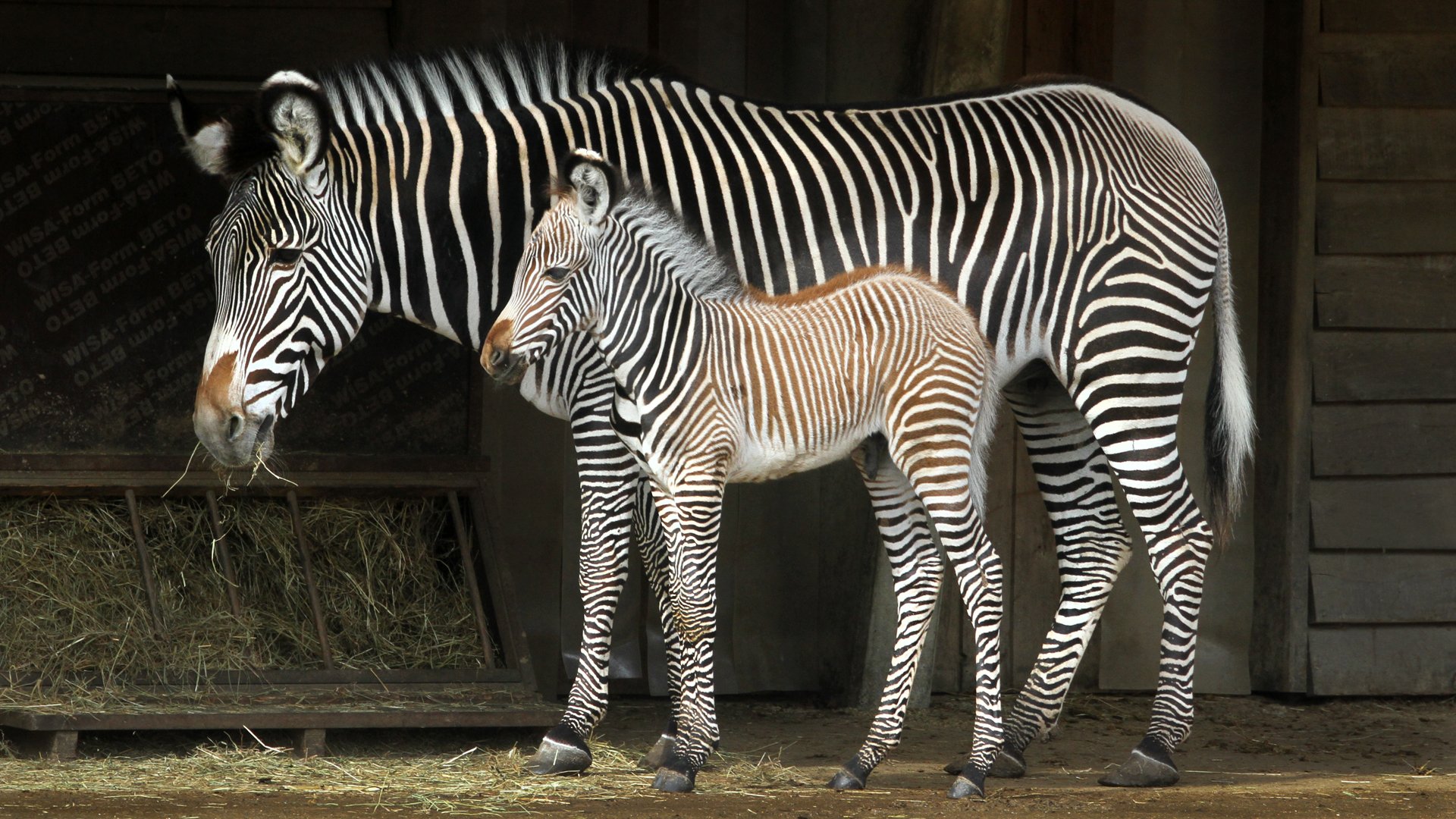Digesting fibres
Equines (horses, donkeys, mules and zebra’s) need their gut microbes to break down dietary fibres in their food. Mammals cannot break down plant-based fibres, such as (hemi)cellulose, themselves. So without microbes, no nutrients. By identifying more gut microbes, we have a better idea of their essential functions. Previous research aimed only at limited bacterial species in only some equines. But a new study in the scientific journal Animal Microbiome now provides the first overview of all gut microbes found in all quines. Even the Grévy-zebra’s (Equus grevyi) in ARTIS.
A ‘heap’ of life
The researchers collected manure of different equine species, also from the zebra’s in ARTIS. About half of excrement consists of dead or weakened gut microbes. In this excrement a broad spectrum of bacteria, archaea and anaerobic fungi were discovered. They also found considerably more bacterial species than expected, proving the importance of bacteria in their role of dietary fibre digestion. The specific roles and responsibilities of the bacteria present were not determined, however. The researchers aim to take up this subject in a follow-up study.
Frequently fungi
The study found the microbial diversity of the ARTIS-zebra’s to be comparable to that of horses. One particularly revealing finding was the deviation of the donkey gut microbiome. There were considerably more anaerobic fungi present in the donkey’s gut. This could explain why it takes longer for donkeys to digest their food. Fungi have a longer life cycle than bacteria and therefore need more time to break down dietary fibres. But by using fungi, donkeys are able to digest fibres more efficiently.
Future
The gut microbiome is a complex ecosystem consisting of hundreds of microbial species. The research shows that the digestive process consists of a cascade of complicated cooperation’s between different species. By identifying these gut microbes it becomes clearer and clearer as to how these collaborations work and what their influence on the health of the host is. This study is only a first step. The researchers also suggested that in the future the effects of diet should be investigated further. Diet has a great effect on the gut microbiome, and therefore the health of the animal. By changing the diet accordingly, disease in equines could be relieved or even prevented. Just as is the case with our own microbiome, there is still so much left to discover.

